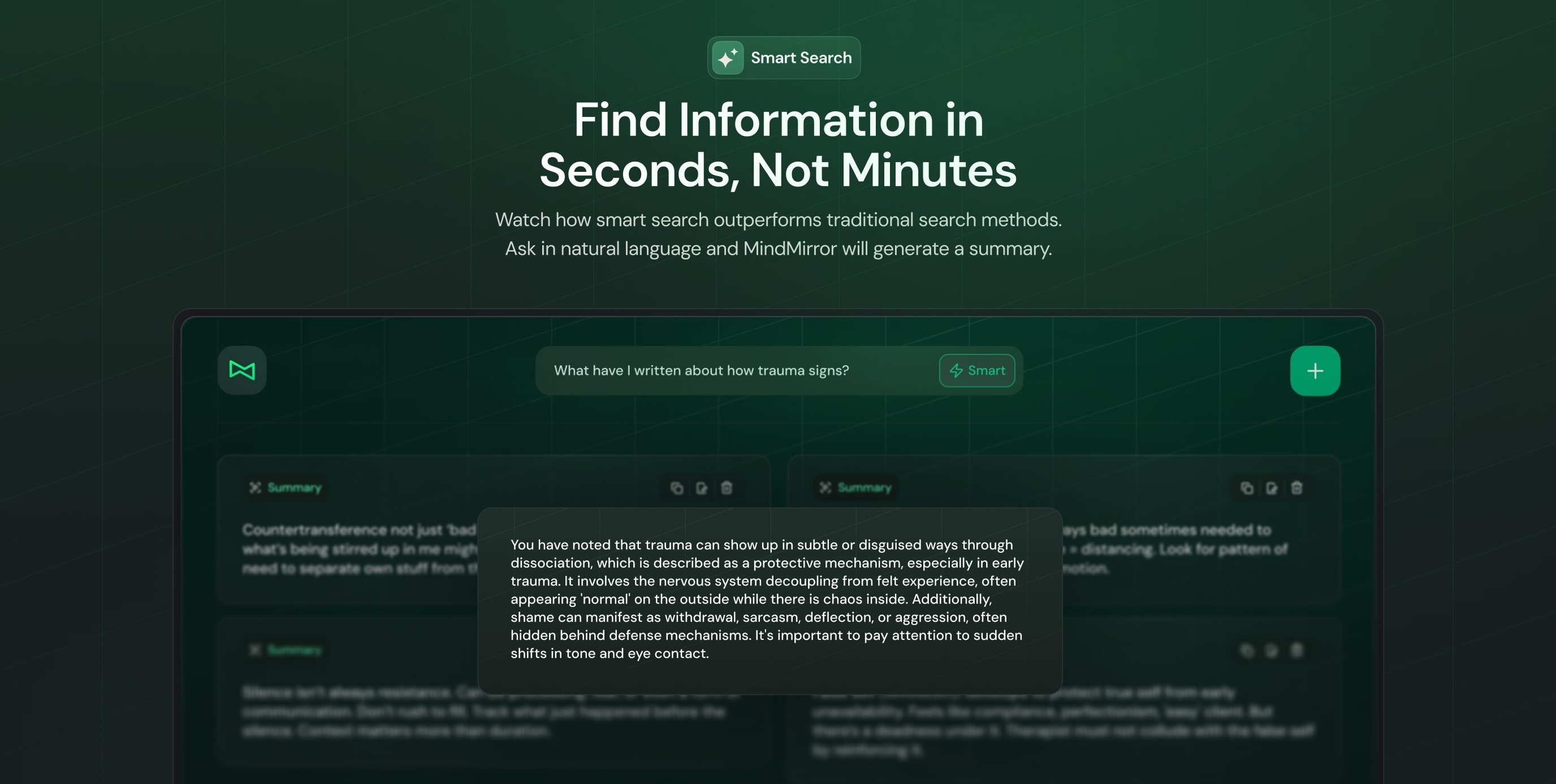
MindMirror vs Notion: When Simple Beats Complex
Let me start with complete transparency: This comparison is written by MindMirror, so there's inherent bias. But I'll do my best to be fair, because choosing the wrong note-taking app can genuinely impact your productivity for years.
The fundamental difference
Notion is a workspace. MindMirror is a notebook.
That's it. That's the comparison. But let me explain why this matters more than any feature list.
When Notion shines (and it really does)
Notion deserves enormous credit for pioneering the all-in-one workspace. If you're someone who:
- Loves building systems You enjoy creating elaborate databases and interconnected pages
- Needs team collaboration Multiple people need to work on the same documents simultaneously
- Enjoys customization You want to tweak every aspect of your workflow
- Has time to invest You can dedicate hours to setup and maintenance
Then Notion might be perfect for you. Seriously. We won't pretend otherwise.
Their database functionality is unmatched. Their flexibility is incredible. The community templates are inspiring. For structured thinkers who enjoy the process of organization itself, Notion is a playground of possibilities.
The hidden cost nobody talks about

But here's what the glowing Notion reviews don't mention:
The average user spends 3+ hours setting up their workspace before writing a single meaningful note.
I've watched brilliant people spend entire weekends "perfecting" their Notion setup. They build elaborate systems with interconnected databases, custom views, and complex tagging hierarchies. They watch YouTube tutorials. They download templates. They reorganize everything quarterly.
Meanwhile, their actual ideas, the reason they needed a note-taking app, remain uncaptured.
The MindMirror philosophy: Write first, organize never
We built MindMirror for people who've tried Notion and felt overwhelmed. For those who downloaded templates but never filled them out. For anyone who's spent more time organizing their organizational system than actually creating.
The search difference that changes everything
Notion uses keyword search across your structured data. It works, but requires you to remember how you organized things.
MindMirror uses semantic search that understands context. Ask "what did we discuss about the Q2 budget?" and get answers, even if you never wrote those exact words.
The difference? With Notion, you need to remember your system. With MindMirror, you just need to remember your thoughts.
The bottom line
Notion is incredibly powerful. We genuinely respect what they've built. But power comes with complexity, and complexity demands time.
MindMirror deliberately does less, but does it instantly. No databases. No properties. No complex relationships. Just your thoughts, captured immediately and found effortlessly.
The question isn't which tool has more features. It's which philosophy matches how your brain actually works.
Ready to stop organizing and start creating? Experience MindMirror's simplicity free for 7 days no credit card, no complex setup, just immediate writing.
Share this post


